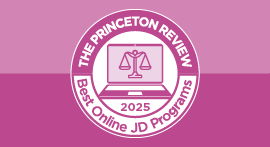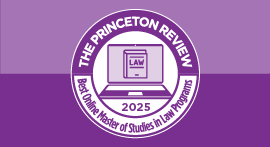In most states, a law school graduate cannot take the bar exam without having attended a law school accredited by the American Bar Association (ABA). Find a law school.

Since passing the bar is a requirement for the practice of law almost everywhere, a degree from a law school without ABA–accreditation is usually a ticket to nowhere.
There are some exceptions. Some law schools do function without the approval of the American Bar Association–especially in California, where the CBA is a powerful (and legitimate) presence.
What is ABA accreditation?
ABA accreditation is a rigorous process that lasts a minimum of three years. The process is meant to insure a level of national uniformity in legal education and practice. If you attend a school approved by the ABA , you are eligible to sit for the bar exam in any state. If you attend a school not approved by the ABA , most states will not let you sit for the bar.
Read More: Find Your Law School
There are a few exceptions to this rule. The California Bar Association is the largest and most powerful state bar association in the United States, and it issues accreditation to many schools in the state that are not accredited by the ABA. You can take the bar exam in California if you attend a school attended by the ABA or the CBA . You can even take the bar if you attend an unaccredited school.
There is one catch, however. The California Bar Exam is known as the toughest in the nation. It's called an “exclusionary bar” because it's meant not just to measure competence, but also to regulate the number of lawyers who can practice in the state. So no matter what sort of school you've attended, you will be judged by the same ruthless standards as your accredited-school or non–accredited school peers.
Does it ever make sense to attend a non– ABA accredited law school?
There's no doubt about it: Going to an ABA –accredited school is the most prestigious route, and allows for greater geographic mobility. Many firms only accept graduates from ABA–accredited schools, and an ABA –approved education often guarantees a higher starting salary. Furthermore, some critics argue that schools not accredited by the ABA offer a weaker legal education, with part–time professors and spartan facilities.
In California, many CBA –approved schools are treated with the same respect as ABA –approved schools. But outside of California, people tend to regard CBA–approved schools with less respect. If you know that you want to practice law in California, and your GPA and LSAT score are not competitive enough to get you into an ABA –accredited school, attending a CBA –accredited school is a logical choice. Or if a CBA –accredited school matches your interests especially well, it might be perfect for you. Just keep in mind that this decision could affect your options further down the road.
Practice for the LSAT
Take a LSAT practice test with us under the same conditions as the real thing. You'll get a personalized score report highlighting your strengths and areas of improvement.
Explore Graduate Programs for You
Explore our featured graduate schools & programs to find those that both match your interests and are looking for students like you.
Best Online JD Programs
Online JD programs offer flexibility, affordability, access to innovative technologies, students from a diversity of career backgrounds, and global opportunities.
Best Online MSL Programs
Master of Studies in Law (MSL) programs are for non-lawyers whose careers in their organizations will benefit from legal training even though they are not required to be practicing attorneys.

Find MBA Programs Matched to Your Interests
Explore our featured business schools to find those that are looking for students like you.


